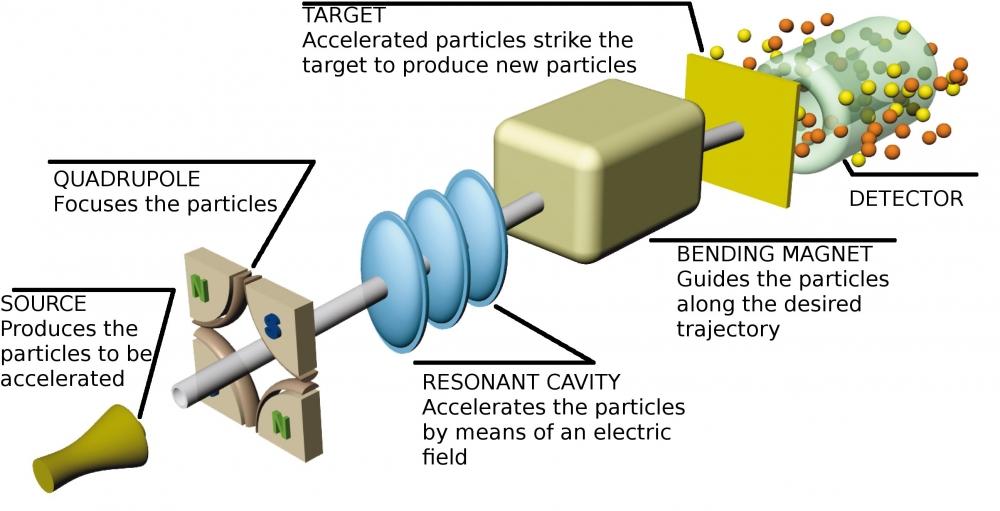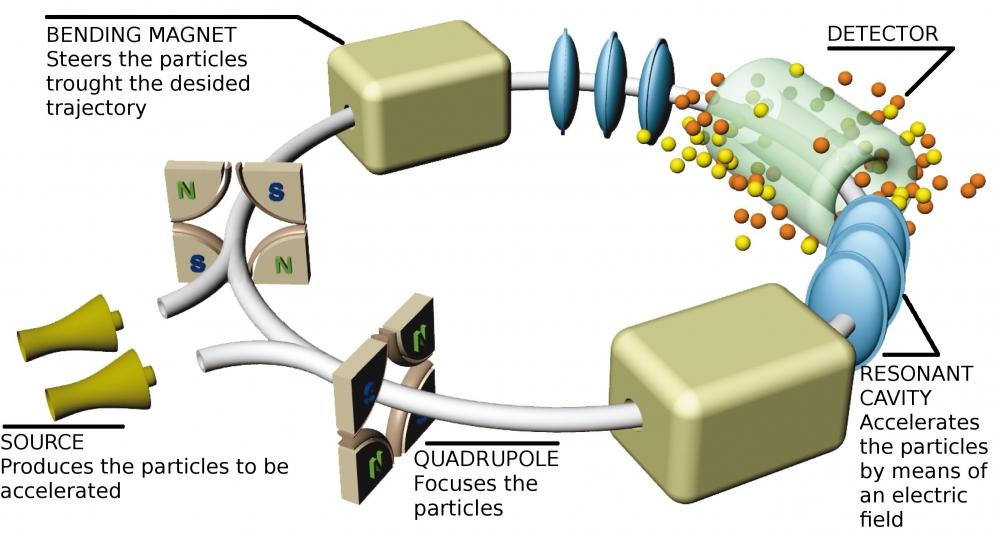The Italian Ministry for Education, University and Research has selected the SuperB accelerator and particle-physics project conducted by the Italian National Institute of Nuclear Physics (INFN) as one of its "flagship projects" in Italy over the next few years. Initial funding for 2010/2011 has been provided as the start of a multiannual funding program.
Reconstructing the history of the Universe by researching the most infrequent events using high-precision technology. This is the INFN idea underlying the construction of SuperB, the particle accelerator based in Italy and with international involvement, which the Ministry for Education, University and Research has decided to sponsor and finance.
A large interest has been expressed in many countries, meanwhile physicists from the United States, Germany, France, Russia, the United Kingdom, Israel, Canada, Norway, Spain, Poland are taking part to the design effort. The purpose of the project is to conduct top-level basic research, developing innovative techniques with an important impact in terms of technology and other research areas.
In the words of the ministerial decree, "The project involves entities and Universities, as well as companies in various business sectors. It is expected to have a number of effects on relevant issues for the country, especially as regards the expansion of basic scientific perspectives and specific applications concerning particle detection, advanced simulation techniques, nanometre metrology, and others." Istituto Italiano di Tecnologia (IIT) is cooperating to the project with INFN. .
The crucial element consists in getting particle beams, which are extremely compact, small, short and very dense to collide. SuperB is thus expected to increase by one hundred times compared to the current limit the number of reactions produced in the same unit of time in the laboratory. In this way, through the study of very rare processes, which cause the decay of particles that are already known, it should be possible to account for minute effects not mentioned in the theories.
 |  |
The quantum leap by SuperB is based on ideas developed in Italy and tested by the accelerator division of the National Laboratories of INFN in Frascati using the machine called Dafne. More specifically, the intersection of the beams at an angle is one of the strengths of the project because it allows a set of particles to follow exactly the same path as those moving in the opposite direction.
The experiments and simulations conducted so far show that SuperB will be able to meet the demands of physics and to produce 1000 pairs of B mesons, the same number of lepton τ pairs, and several thousands of D mesons for every second of its full-power operation.
Find out more at the SuperB website.
-- Based on InterAction Newswire press release
